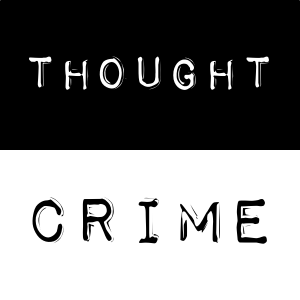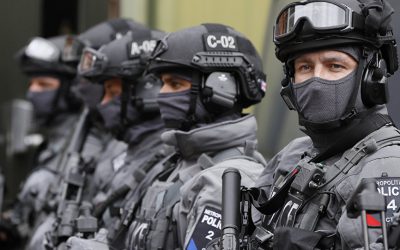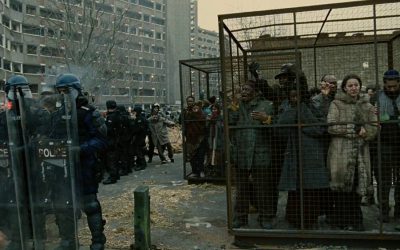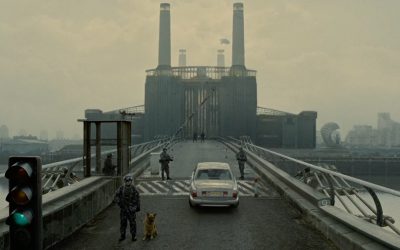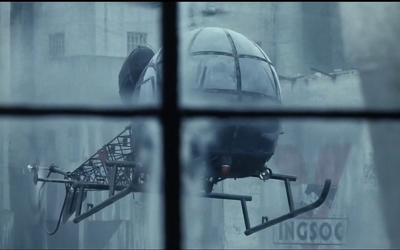Thoughtcrime: Course Outline
Choosing Thoughtcrime as your English programme for Level 3 means that you probably find the darker, more dystopian aspects of world literature attractive; you’re somehow inexorably drawn to the unusual and deep down you sense that something is rotten in the state of…
Abigail’s Practice Exam Response – 3.1 Written Texts
Nineteen Eighty-Four Type Up - Mock Exam 2020 Statement #4: The most significant texts are cautionary tales “The best books are those that tell us what we already know.” Written by George Orwell in his dystopia Nineteen Eighty-Four, this idea of literature presenting...
Film Study: Minority Report
The system is perfect until it comes after you.
Radiohead: Idioteque, 2+2=5, Electioneering, Fake Plastic Trees and Planet Telex
Fake Plastic Trees: A green plastic watering canFor a fake Chinese rubber plantIn the fake plastic earth That she bought from a rubber manIn a town full of rubber plansTo get rid of itself It wears her outIt wears her outIt wears her outIt wears her out ...
3.7 Significant Connections – Dystopian Genre Study
This task is an extension of our Dystopian genre study. This is an opportunity to explore how the unifying elements of the genre are employed across different texts by different authors to form warnings about the future.
Practise Paper: 3.1 Extended Written Text – Nineteen Eighty Four
91472 Respond critically to speci ed aspect(s) of studied written text(s), supported by evidence. 4 Credits. External
Practice Analysis – Sample Response – 3.1 Extended Written Texts
Good literature enlightens; great literature inspires action Some may believe that literature's role is largely archival, that it simply records moments of human endeavour and imagination, thereby making the great literary canon simply a vault, into which we place the...
Practise Paper: 3.3 Unfamiliar Texts
91474: Respond critically to significant aspects of unfamiliar written texts through close reading, supported by evidence. External. 4 Credits
Chapter One: Task Outline
This task is an extension of our genre study of the dystopia Nineteen Eighty-Four by George Orwell. This is an opportunity to create your own dystopia, grounded in the socio-political anxieties of our time.
The Grammar of Dystopia
The Dystopia genre has its own grammar – This close reading of the opening page of Nineteen Eighty-Four offers a clear insight into the grammatical means by which George Orwell infused his futuristic vision with an eerie authenticity.
Selected Quotations from Nineteen Eighty Four
It was conceivable that they watched everybody all the time “Any sound that Winston made, above the level of a very low whisper, would be picked up by it; moreover, so long as he remained within the field of vision which the metal plaque commanded, he could be seen as...
Thoughtcrime Podcast
Listen to this course's companion podcast to help make sense of everything you find published here
Course Content
Choosing Thoughtcrime as your English programme for Level 3 means that, you probably find the darker, more dystopian aspects of world literature attractive; you’re somehow inexorably drawn to the unusual and deep down you sense that something is rotten in the state of… This programme will take a media-savvy journalistic approach. You’ll need to think fast, question everything and be willing to speak up. You will be asked to challenge yourself, take risks and show ambition.
We’ll be reading the work of some of the 20th Century’s greatest satirists, poets and activists. We’ll explore modern text communication, political and online language and compare this with our own speech to learn how the wool can be so easily pulled over our eyes. We’ll look at the grammar and style of a range of journalistic writing and publish our own. We’ll explore how our very language itself can control our thoughts and – if we’re not careful – limit our freedom. We’ll read one of the 20th Centuries most disturbing political novels, George Orwell’s Nineteen Eighty Four and explore modern anti-heroes such as Donnie Darko and A Clockwork Orange’s Alex De Large. Throughout, you will be practising the key skills required to succeed in your NCEA programme.
In parallel to this everyone will be completing for homework their own longitudinal genre inquiry by investigating links between self-selected books, films and art and presenting these in documentary form.
Political language. . . is designed to make lies sound truthful and murder respectable, and to give an appearance of solidity to pure wind.
GEORGE ORWELL
